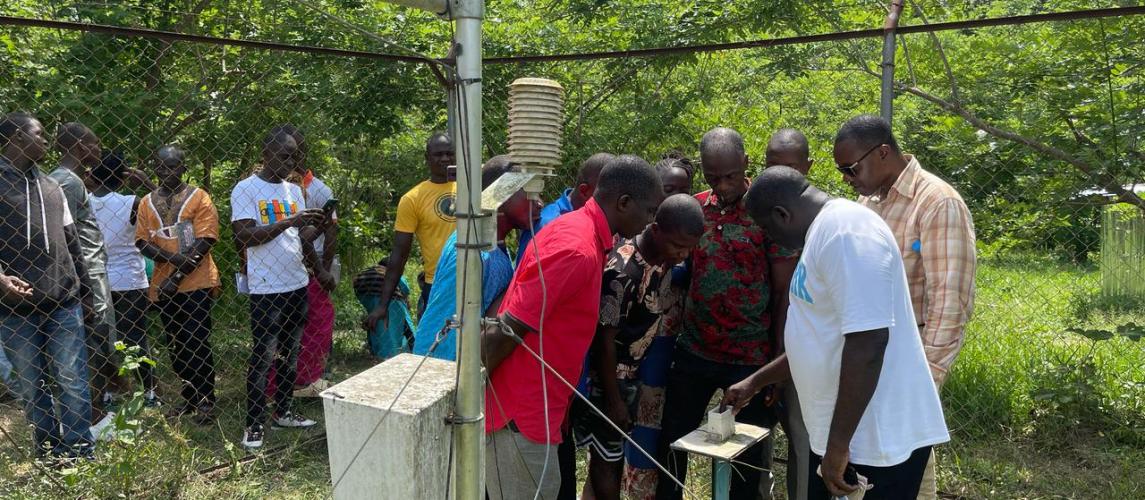
CARI Empowers Nimba Cocoa Farmers with Meteorological Skills to Adapt to Climate Challenges
BEEPLAY, Nimba County - The Central Agricultural Research Institute (CARI), in collaboration with the Meteorology Department of the Ministry of Transport, organized a week-long training session to enhance cocoa farmers' capacity in Beeplay, Nimba County. The session was dedicated to equipping farmers with critical technical skills for collecting and utilizing weather data, an initiative sponsored by the International Fund for Agricultural Development (IFAD).
The training emphasized the essential role of meteorological data such as temperature, humidity, wind patterns, and rainfall in improving cocoa farming practices amid the growing challenges of global warming. By fostering the understanding and application of this data, local farmers were empowered to adopt innovative agricultural practices and make informed decisions, thereby mitigating the impact of climate change on cocoa production in Liberia.
The workshop introduced farmers to tools and techniques for interpreting weather data and its application in agricultural planning. Using weather station data from CARI, participants were taught to determine optimal planting schedules and best farming practices, aiming to minimize cocoa pod losses and boost productivity. Key topics included understanding seasonal weather forecasts, such as precipitation, humidity, solar radiation, wind speed, and soil conditions. These insights are vital for enhancing farming outcomes across Liberia's cocoa sector.
Facilitated by Freeman K. Blackie, ICT Specialist/Agro-Meteorology Technician at CARI, and Albert M. Sherman, Deputy Director of the Meteorology Department at the Ministry of Transport, the training also covered the interpretation of weather symbols and terminologies. Farmers from six districts and communities actively participated, demonstrating enthusiasm for integrating climate adaptation strategies into cocoa farming.
Freeman K. Blackie highlighted the importance of reliable weather data for rain-fed agriculture, stating, "Farmers need precise information on rainfall timing and duration to make critical decisions about when, what, and how to plant. This knowledge is particularly crucial given the increasing effects of climate variability on cocoa yields and production."
Albert M. Sherman underscored the workshop’s objective of minimizing losses during sowing and maximizing yields during harvesting. He added, "The practical application of weather forecast data in cocoa farming is pivotal for improving outcomes and ensuring food security."
Speaking on behalf of the farmers, Victor D. Tuah, a cooperative head, expressed gratitude and commitment to implementing the new practices. "With support from CARI's meteorological services, cocoa farmers are now equipped to use weather data effectively. This initiative enables us to combat climate challenges and enhance cocoa production in our communities."
The training concluded with a call to action, encouraging participants to apply and share their newfound knowledge to build a resilient and sustainable cocoa farming sector in Liberia.
